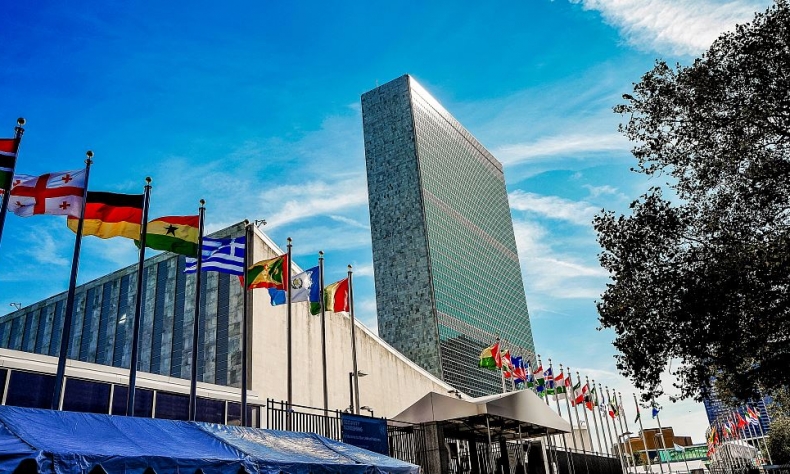
“America First” Is a Threat to Multilateralism
The Trump administration believes strongly in a foreign policy of “unilateralism” – that is, America’s interests should be forced on other countries and bodies rather than engaging in politics of compromise and consensus. This poses a threat to the United Nations and the cause of cooperative global governance.
This week marked 75 years since the establishment of the United Nations. Founded in the final days of the Second World War in 1945, the organization was heralded as a body to bring about global peace, security and cooperation in a new era avoiding mistakes of the past and ensuring the well-being of the international community.
The benefits it brings to the world are indispensable, yet that does not mean it is without its challenges.
Over the past several days, world leaders have delivered speeches to the organization celebrating this anniversary. However, U.S. President Donald Trump sought to use the platform as a vehicle for attacking China, blaming it for the outbreak of the COVID-19 virus and demanding that the United Nations hold China “responsible” for the pandemic.
This reveals more to us about how the White House views the U.N. and the respective values of multilateralism. Against a backdrop of four years of attacking the U.N., negating its treaties and withdrawing from its organizations, the Trump administration believes strongly in a foreign policy of “unilateralism” – that is, America’s interests should be forced on other countries and bodies rather than engaging in politics of compromise and consensus. This poses a threat to the United Nations and the cause of cooperative global governance.
What do we mean by “unilateralism” and “multilateralism”? The former refers to when a country acts alone in establishing its foreign policy goals, while the latter refers to when a group of countries work together in a given international body to establish common positions and interests.
As a result, organizations such as the United Nations are often referred to as “multilateral bodies” because they are institutions where large numbers of countries work together under a common set of rules and principles, as opposed to acting alone and imposing their will on others.
As it stands, the current American administration is opposed to multilateralism as a foreign policy strategy, primarily because it forces America to compromise on its core interests with other countries.
Instead, the White House believes in a doctrine of “America First.” This means not working with the rest of the international community, but prioritizing its own interests at the expense of others. As a result, it utilizes a foreign policy of unilateralism where it weaponizes its superpower status and dominance to get what it wants against weaker countries, rather than having to negotiate and compromise through international institutions.
Therefore, the Trump administration seeks to dismiss bodies such as the U.N., overrule them and instead force its will on others based on a belief that “might makes right.”
Over the tenure of the Trump administration, it has done this extensively: withdrawing from the United Nations Joint Comprehensive Plan of Action Treaty (JCPOA) and forced other countries to comply with unilateral sanctions through leveraging the U.S. dollar.
It has also withdrawn from the United Nations Human Rights Council (UNCHR), the United Nations Educational, Scientific and Cultural Organization (UNESCO), as well as the World Health Organization, the Paris Climate Accords, and many more international treaties. It has also sought to oppose institutions such as the European Union, branding them a threat to national interests.
When an international body gets in the way of Trump’s foreign policy, his response is to simply ignore it, break its rules and cut its funding.
Against this backdrop, it is misleading for the administration to brand other countries as a threat to the global system of norms and rules when it is in the process of doing so itself in the name of “America First.”
Given this, the 75th anniversary of the United Nations gives the world the opportunity to remember why this institution is important and why a system whereby countries work together as equal members of an organization, rather than divided on metrics of power, is ultimately crucial for global peace and stability.
Undoubtedly, it is necessary and crucial for countries across the world to value and uphold multilateral cooperation, rather than utilizing it as a platform to attack and smear others for political gain.
Tom Fowdy is a British political and international relations analyst and a graduate of Durham and Oxford universities. He writes on topics pertaining to China, the DPRK, Britain and the U.S.
 Facebook
Facebook
 Twitter
Twitter
 Linkedin
Linkedin
 Google +
Google +










